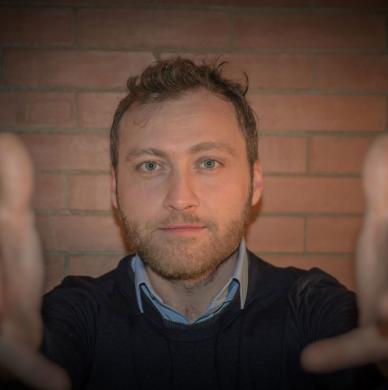
Professore Associato
Istituto di Biorobotica
Marco Controzzi
Bio
Marco Controzzi received the M.Sc. degree in Mechanical Engineering from the University of Pisa, Italy, in 2008, and the Ph.D. in Biorobotics from the Scuola Superiore Sant’Anna, Pisa, Italy, in 2013. He is currently Associate Professor at The Biorobotics Institute, Scuola Superiore Sant’Anna, Pisa, Italy. He joined the ARTS-Lab of the Scuola Superiore Sant’Anna in 2006 as Research Assistant. Marco Controzzi is founder of a spin-off company of the Scuola Superiore Sant'Anna: Prensilia Srl.
Ricerca
The current research of Marco Controzzi is mainly devoted to the design and development of advanced artificial devices aimed at improving the lives of humans.
Full list of papers: Google Scholar Citations
Ongoing projects
2023-2025 National Project, CALLIOPE - lattiCe bAsed uLtra LIght sensOrized upper limb ProsthEsis, call: PRIN 2022. Role: Coordinator.
Project Synopsis: Modern robotic prostheses still face limitations and lack personalization. CALLIOPE aims to develop a lightweight, customizable, and affordable upper limb prosthesis with integrated tactile sensing, leveraging topological optimization and additive manufacturing. The project enhances lattice structures for greater strength, durability, and customization while optimizing fatigue resistance.
2023-2026 European Project - Next Generation Europe FIT4MEDROB - Fit for Medical Robotics role: Co-Principal Investigator.
Project Synopsis: Fit for Medical Robotics aims to cover technological, economical, legal and policy gaps currently present in the Italian healthcare system, that have prevented nationwide clinical adoption of first-class, patient specific therapies/treatments, robotic and digital treatments. Within the project, my research unit is investigating new tests and methods for assessing human dexterity, focusing on two use cases: post-stroke adults and children with cerebral palsy.
2023-2026 European Project - Next Generation Europe Tuscany Health Ecosystem – Spoke 9: Robotics and Automation for Health role: Co-Principal Investigator.
Project Synopsis: Within Spoke 9, my research unit is exploring how shared autonomy can enhance remote teleoperation. This includes leveraging gaze tracking to infer user intent and enabling autonomous robot behavior to assist operators in dexterous manipulations.
2021-2025 European Project B-CRATOS (Wireless Brain-Connect inteRfAce TO machineS: B-CRATOS), call: H2020-FETOPEN-2018-2020, role: WP Leader and Principal Investigator.
Project Synopsis: B-CRATOS aims to develop a revolutionary biohybrid brain-machine interface enabling wireless, bidirectional communication between the brain and external devices. The project seeks to enhance neuroprosthetic control and sensory feedback. Within the project, my research unit is leading the work package dedicated to developing the sensorized hand and decoding neural signals for intuitive control.
2020-2024 European Project APRIL (multipurpose robotics for mAniPulation of defoRmable materIaLs in manufacturing processes), call: H2020-NMBP-FOF-2019, role: WP Leader and Principal Investigator.
Project Synopsis: The APRIL project aims to advance flexible and autonomous robotic solutions for assembly, packaging, and logistics across various industries. Within the project, my research unit leads the development of the low-level control layer responsible for executing the robot’s dexterous actions. Additionally, we have developed a high-level reasoning algorithm inspired by human behavior to select the optimal grasp strategy based on contextual factors.
Recently ended projects (partial list)
2020-2023 INAIL project, BioArm - Portable exoskeleton for the rehabilitation of the arm, role: Co-Principal Investigator.
2019-2023 Industrial research contract with INPECO SA, ALA2021 (Advanced Laboratory Automation), role: Coordinator.
Pubblicazioni
Brevetti
Corsi
Teaching (partial list)
2015-now, Rehabilitation Engineering, 60 hours, MSc in Biomedical Engineering, University of Pisa, The course material is available on the Microsoft Teams channel.
2021-2023, Robotics for Assisted Living, 30 hours, MSc in Bionics Engineering, University of Pisa and Scuola Superiore Sant’Anna
2016-2017, Hands-on CAD, 20 hours, Honors students, Scuola Superiore Sant'Anna
2014-2015, Analysis and Design of Mechanical Components, 30 hours, PhD students, Scuola Superiore Sant'Anna,
